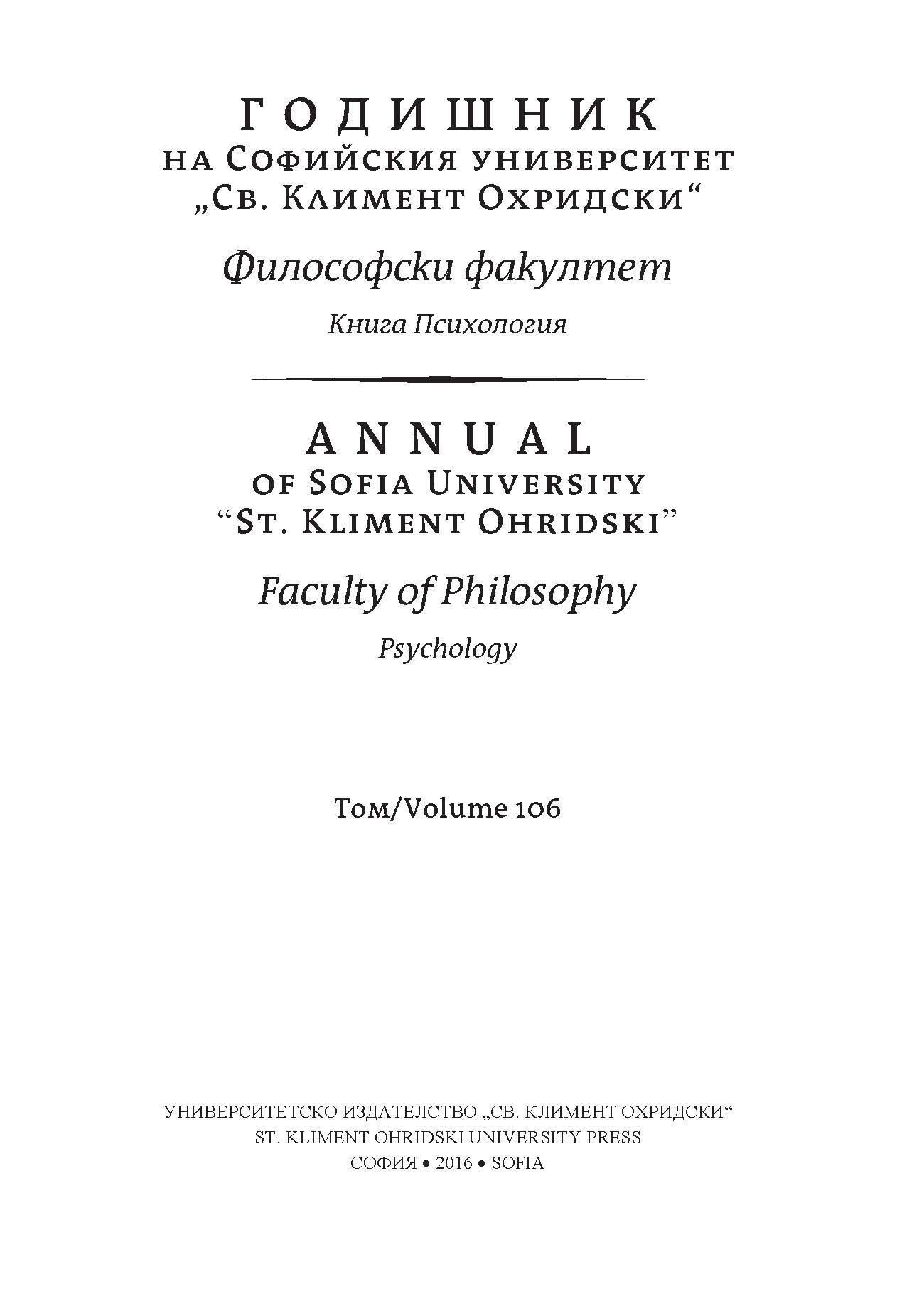Модели на хранително поведение в български контекст
Eating behavior models in Bulgarian context
Author(s): Iveta PilevaSubject(s): Social Sciences, Psychology, Social psychology and group interaction, Experimental Pschology
Published by: Софийски университет »Св. Климент Охридски«
Keywords: eating behavior models; EBPQ; BFI-10
Summary/Abstract: The aim of this study is to investigate contemporary eating behavior models in Bulgarian socio-cultural environment. A pilot study has been done with a sample of 101 subjects between 20 and 40 years of age. The method used includes the full version of the Eating Behavior Patterns Questionnaire of Williams and Christensen (EBPQ), the short version of BIG5 personality traits (BFI-10), The satisfaction with life scale by Pavot and Diener (SWLS), Questionnaire for Eudemonic Wellbeing (QEWB), developed by Waterman and colleagues and a few questions about self-defined level of happiness. The investigation of the structural organization of the eating behavior models shows a five-factor structure of the questionnaire, whereas four of the scales are like the original ones and the fifth one is modified to a scale that measures meat consumption, according to its contents. The factors extracted are with high reliability. The variability check on the eating behavior models demonstrates that women have higher scores on the low-fat eating, emotional eating and meal skipping scales compared to men. Furthermore, single respondents have higher scores on the snacking and convenience foods scale compared to those who are married and living in partnership. Sport differentiates significantly the low-fat eating behavior scale, whereas the low-fat eating model increases with increase in sport frequency. The correlation analysis determines a statistically significant positive correlation between low-fat model of eating behavior and neuroticism as a personality trait. Another significant negative correlation is between the emotional type of eating behavior and conscientiousness as a personality trait. Both correlations are weak.
Journal: Годишник на Софийския университет „Св. Климент Охридски“. Философски факултет. Психология
- Issue Year: 106/2016
- Issue No: 1
- Page Range: 363-404
- Page Count: 42
- Language: Bulgarian

